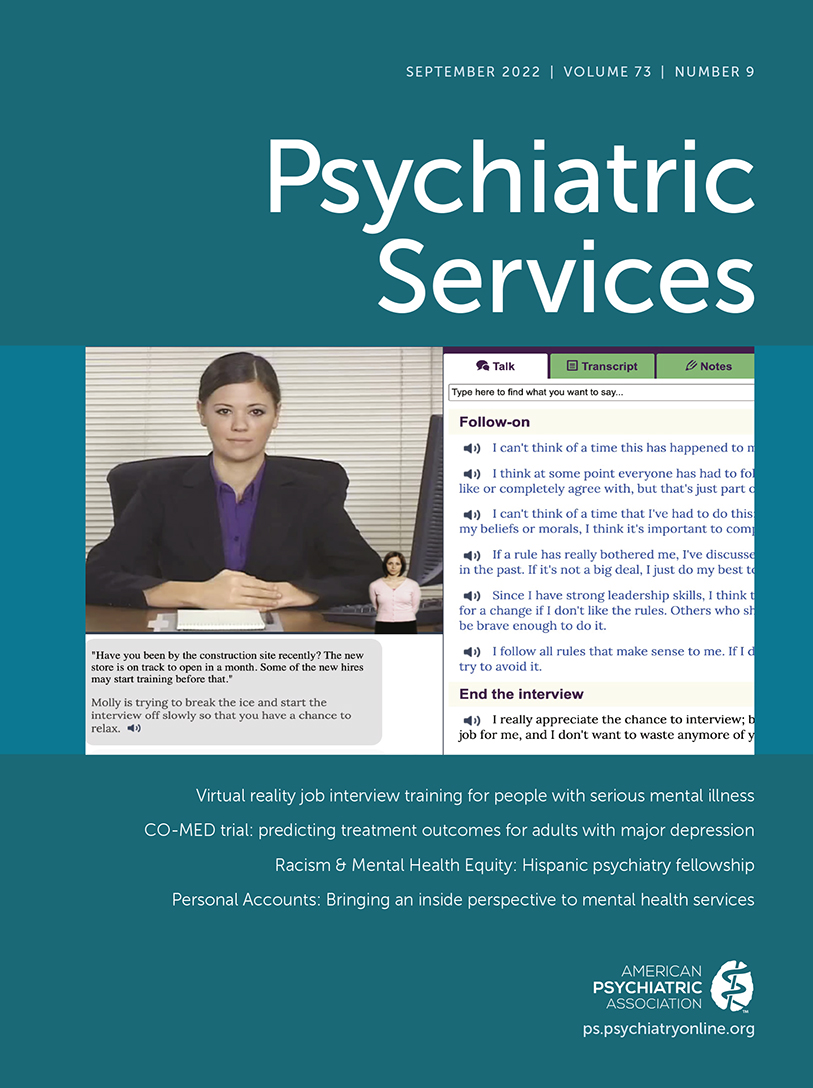Methodologies to Advance a “Science of How”: Identifying and Engaging Intervention Targets and Outcomes
Abstract
Objective:
Although implementation science has taken hold in many areas of psychiatric services research, a need remains for developing effective, low-cost interventions for specific subpopulations with mental health conditions. The experimental therapeutics approach has gained momentum as a framework for developing effective interventions. However, few studies have taken steps to rigorously apply experimental therapeutics. This article provides a blueprint for applying this approach.
Methods:
A focused literature review was conducted to document the frequency of the application of experimental therapeutics among articles published between 2011 and 2021 in some of the American Psychiatric Association’s journals. Independently of the review, the authors delineated a four-component approach for applying experimental therapeutics in research and present practical, innovative strategies to advance psychiatric services research.
Results:
The four-component approach includes outlining prerequisites, identifying target mechanisms, proposing intervention strategies to address target mechanisms, and using advanced analytic methods. The strategies described for each component are not exhaustive; rather, they suggest promising avenues for research that can lead to more effective interventions and deeper understanding of how, and for whom, an intervention works.
Conclusions:
The application of experimental therapeutics in psychiatric services research can lead to increased development, refinement, and implementation of effective interventions for specific populations or conditions.



